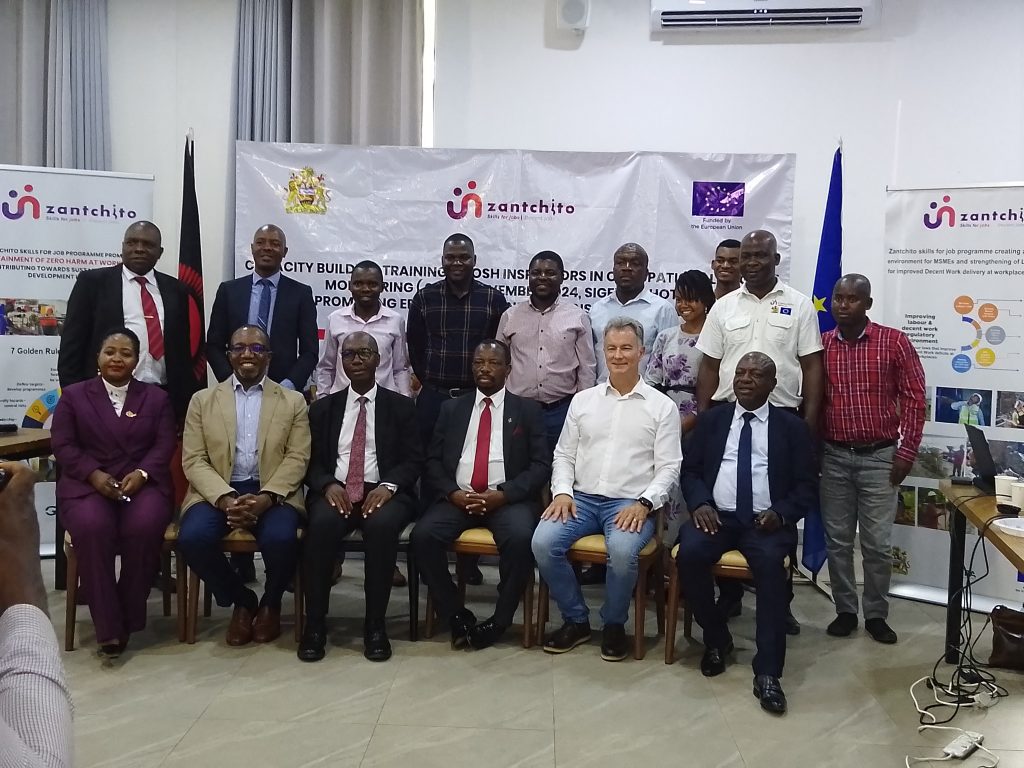Commissioner of Labour in the Ministry of Labour and Manpower Development, Hlalerwayo Nyangulu, has expressed Malawi Government’s commitment to ensuring that workers are productive, protected and safeguarded against workplace injuries and diseases.
Nyangulu made the remarks at the start of week-long Capacity Building Training for Occupational Safety and Health (OSH) Inspectors on Occupational Monitoring in Lilongwe on Monday.

He said the ministry highly prioritizes OSH matters in its effort to to protect workers and promote decent work, social justice and sustainability of the workforce.
“Occupational injuries and diseases result in lost time, increased ill health and incapacity of workers to do their work, hence contributing to loss of productivity to the country. Government will therefore remain resolute towards ensuring that our workers are productive, are protected and safeguarded against workplace injuries and diseases,” he said.
The European Union (EU) has financed the training through the Zantchito Skills for Jobs Project.
Nyangulu drew the attention of the participants to the Malawi 2063 (MW2063), which expresses the country’s vision and aspirations of the nation regarding human capital as the “conductor of an orchestra” directing how other resources are put into productive use to attain desired outcomes.
He said human resource is a valuable asset for realisation of the three pillars; agriculture productivity and commercialization, industrialization and urbanization.
“Human life has no measurable cost and has to be protected from all forms of occupational risks and indeed all forms of exploitation at work. This is why the government puts safety and health of workers as a priority on the government agenda. As a Ministry responsible for the protection of workers, we will continue to ensure that the work on safeguarding the safety and health of workers is maintained and enhanced,” said the Labour Commissioner.
Nyangulu therefore challenged the participants to take the training seriously and ensure they conduct meaningful occupational hygiene monitoring after the training.

In his remarks, OSH Expert for Zantchito Skills for Jobs, Johanes Mandowa, said the training is emanating from some training needs assessment that was carried out on the onset of the project.
Mandowa said the training program is meant to equip the occupational safety and health inspectors with knowledge on how to conduct patient hygiene monitoring in the workplace environment.
“We find that quite a number of workplaces in Malawi employees are exposed to physical hazards such as dust, for example, noise exposure, for example, issues of poor lighting in the workplace environment. Those particular hazards must be identified in a more scientific way. Hence the need for us to equip our operational safety and health inspectors with knowledge about occupational hygiene monitoring so that when they go out there, they’re able to identify these hazards, they’re able to recognize and anticipate them,” he said.
Mandowa said after the training, they expect the trained inspectors to evaluate and control hazards in a more appropriate manner, which is actually backed by scientific evidence.
